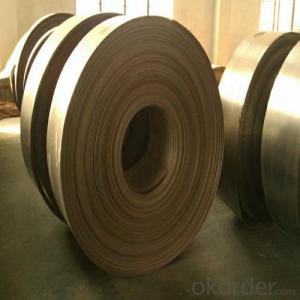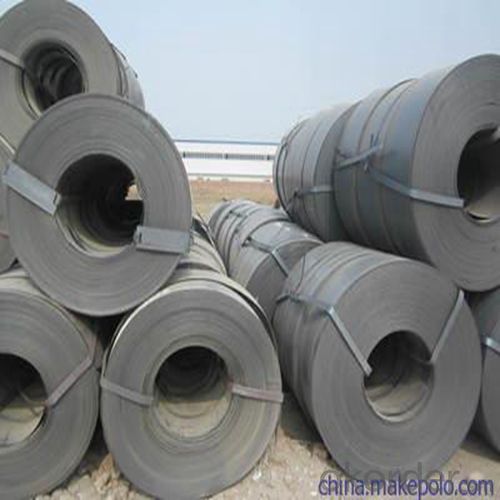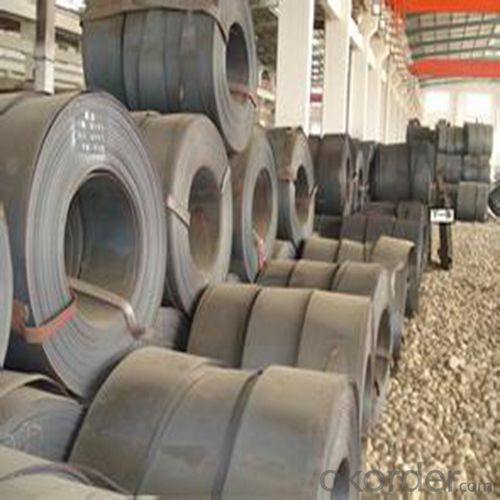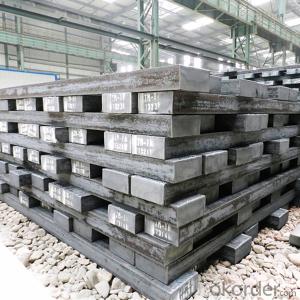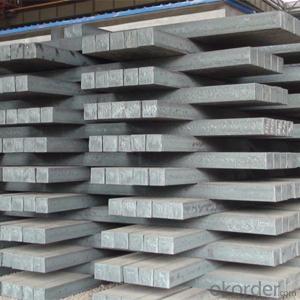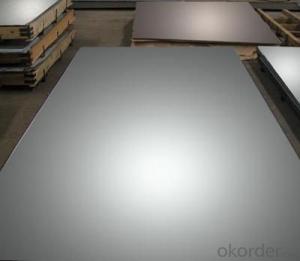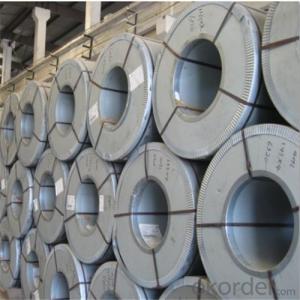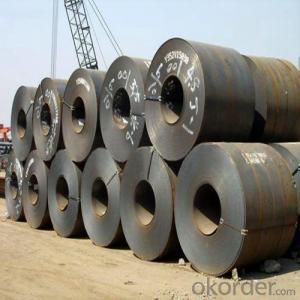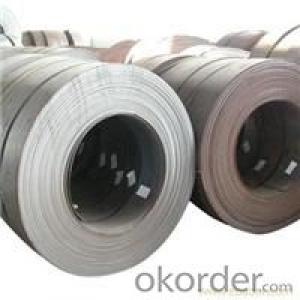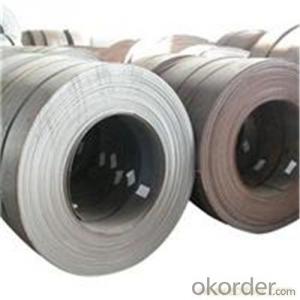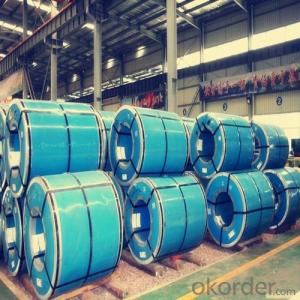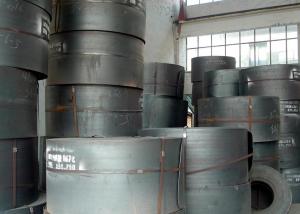Hot Rolled Band Steel In Coil Corrugated Steel Band With Competitive Price
- Loading Port:
- Tianjin
- Payment Terms:
- TT or LC
- Min Order Qty:
- 50 m.t.
- Supply Capability:
- 20000 m.t./month
OKorder Service Pledge
OKorder Financial Service
You Might Also Like
Product Description:
OKorder is offering Hot Rolled Band Steel In Coil Corrugated Steel Band With Competitive Price at great prices with worldwide shipping. Our supplier is a world-class manufacturer of steel, with our products utilized the world over. OKorder annually supplies products to European, North American and Asian markets. We provide quotations within 24 hours of receiving an inquiry and guarantee competitive prices.
Product Applications:
Hot Rolled Band Steel In Coil Corrugated Steel Band With Competitive Price are ideal for structural applications and are widely used in the construction of buildings and bridges, and the manufacturing, petrochemical, and transportation industries.
Product Advantages:
OKorder's Hot Rolled Band Steel In Coil Corrugated Steel Band With Competitive Price are durable, strong, and resist corrosion.
Main Product Features:
· Premium quality
· Prompt delivery & seaworthy packing (30 days after receiving deposit)
· Corrosion resistance
· Can be recycled and reused
· Mill test certification
· Professional Service
· Competitive pricing
Product Specifications:
Corresponding Steel Grade for Reference:
CHN, GB | JPN, JIS | GER, DIN |
50CrVA | SUP10 | 50CrV4 |
GBR, BS | FRA,FN | |
735A51 | 50CV4 |
Chemical Composition:
C | Si | Mn |
0.46~0.54 | 0.17~0.37 | 0.50~0.80 |
S | P | Cr |
≤0.030 | ≤0.030 | 0.80~1.10 |
Ni | Cu | V |
≤0.35 | ≤0.25 | 0.10~0.20 |
Mechanical Properties:
-Tensile Strength σb (MPa): ≥1274 (130)
-Yield Strength σs (MPa): ≥1127 (115)
-Elongation δ5 (%):≥10
-Percentage reduction of area: ψ (%): ≥40
-Hardness:
1, Hot rolled, ≤321HB
2, Cold drawn + Heat treatment: ≤321HB
-Norm of heat treatment:
1, Quenching: 850℃±20℃.
2, Cooled by oil.
3, Tempering: 500℃±50℃.
Usage/Applications
Mechanical Properties are good. 50CrVA have high hardenability. The element V reduces thermal sensitivity and improves the strength and toughness. The fatigue strength and yield point are high but the weld ability is bad.
-50CrVA is a nice material of spring. Usually it’s used as valve spring, piston spring and secure valve spring with big section that can bear much load. The working temperature is below 300℃
Packaging & Delivery
-Packing Detail: The products will be well packed.
-Delivery Detail: 30~45 working days after receive buyer’s T.T. or L/C.
FAQ:
Q1: Why buy Materials & Equipment from OKorder.com?
A1: All products offered byOKorder.com are carefully selected from China's most reliable manufacturing enterprises. Through its ISO certifications, OKorder.com adheres to the highest standards and a commitment to supply chain safety and customer satisfaction.
Q2: How do we guarantee the quality of our products?
A2: We have established an advanced quality management system which conducts strict quality tests at every step, from raw materials to the final product. At the same time, we provide extensive follow-up service assurances as required.
Q3: How soon can we receive the product after purchase?
A3: Within three days of placing an order, we will begin production. The specific shipping date is dependent upon international and government factors, but is typically 7 to 10 workdays.
Q4: What makes stainless steel stainless?
A4: Stainless steel must contain at least 10.5 % chromium. It is this element that reacts with the oxygen in the air to form a complex chrome-oxide surface layer that is invisible but strong enough to prevent further oxygen from "staining" (rusting) the surface. Higher levels of chromium and the addition of other alloying elements such as nickel and molybdenum enhance this surface layer and improve the corrosion resistance of the stainless material.
Q5: Can stainless steel rust?
A5: Stainless does not "rust" as you think of regular steel rusting with a red oxide on the surface that flakes off. If you see red rust it is probably due to some iron particles that have contaminated the surface of the stainless steel and it is these iron particles that are rusting. Look at the source of the rusting and see if you can remove it from the surface.
Images:
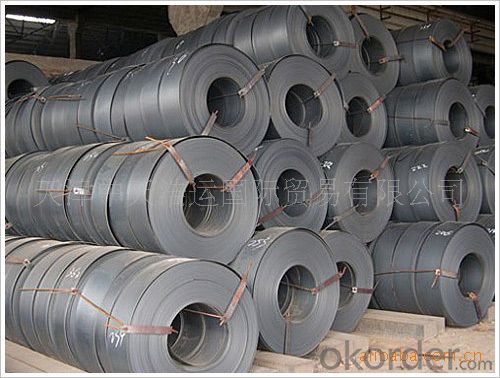
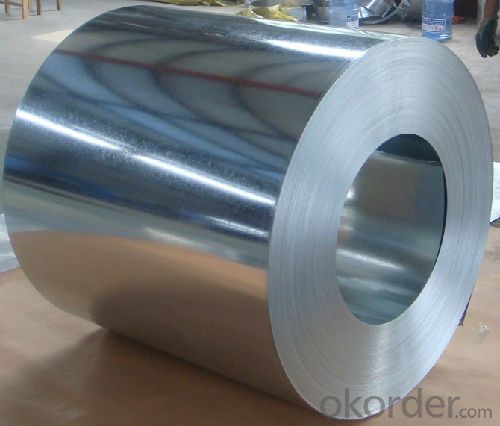
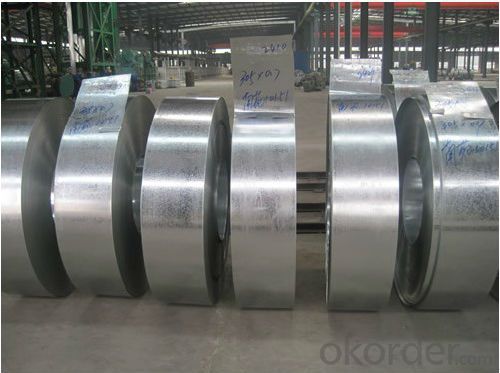
- Q: What are the different types of steel fencing and barriers available?
- There are several different types of steel fencing and barriers available, including chain-link fences, ornamental iron fences, welded wire mesh fences, and steel bollards. Each type offers unique features and benefits, catering to different security and aesthetic preferences.
- Q: How is steel used in the manufacturing of communication towers?
- Steel is commonly used in the manufacturing of communication towers due to its strength, durability, and flexibility. It provides the necessary structural support to withstand extreme weather conditions and support the weight of antennas and other equipment. Additionally, steel's malleability allows for easy customization and modification of towers to meet specific height and design requirements.
- Q: What are the common uses of stainless steel cookware?
- Stainless steel cookware is commonly used for various cooking techniques such as sautéing, frying, boiling, and simmering. It is highly durable, non-reactive with food, and provides even heat distribution, making it ideal for everyday cooking tasks in kitchens and professional settings.
- Q: How is steel used in the production of playground equipment?
- Steel is used in the production of playground equipment due to its durability and strength. It is commonly used to construct the frames and supports of structures such as swings, slides, and climbing frames. Steel's robust nature ensures the equipment can withstand the weight and movement of children, making it a safe and reliable material for playgrounds.
- Q: How are steel products used in the water treatment industry?
- Steel products are used in the water treatment industry for various purposes such as the construction of water tanks, pipelines, and treatment equipment. They provide durability, corrosion resistance, and strength, ensuring a reliable infrastructure for storing, transporting, and treating water.
- Q: How are steel profiles used in architectural design?
- Steel profiles are commonly used in architectural design for their strength, versatility, and aesthetic appeal. They are often employed as structural elements, such as beams and columns, to support the weight of a building and provide stability. Steel profiles also allow for the creation of unique and intricate designs, enabling architects to achieve their desired aesthetic while maintaining structural integrity. Additionally, steel profiles are frequently used in the construction of facades, curtain walls, and other architectural features, offering durability, flexibility, and an array of design possibilities.
- Q: What are the applications of steel mesh in security fencing?
- Steel mesh has various applications in security fencing due to its strength, durability, and versatility. It is commonly used in high-security areas such as prisons, military installations, and sensitive government buildings. Steel mesh provides a physical barrier that prevents unauthorized access, deters intruders, and enhances the overall security of the premises. Additionally, its transparency allows for better visibility, making it suitable for areas where surveillance is crucial. Overall, the applications of steel mesh in security fencing help safeguard properties, protect assets, and ensure the safety of individuals within the enclosed area.
- Q: What are the different types of steel profiles and sections available?
- There are several different types of steel profiles and sections available, including H-beams, I-beams, U-channels, angles, and T-sections. These profiles and sections have different shapes and sizes, allowing them to be used for various structural and construction purposes.
- Q: What are the applications of steel forgings in the oil and gas industry?
- Steel forgings have numerous applications in the oil and gas industry. They are commonly used in critical components such as valves, flanges, wellheads, and drilling equipment. The high strength and durability of steel forgings make them ideal for withstanding extreme operating conditions, including high pressure and temperature environments. Additionally, steel forgings offer excellent resistance to corrosion, erosion, and fatigue, ensuring the long-term reliability and safety of oil and gas facilities.
- Q: What are the different types of steel meshes and their uses?
- There are several types of steel meshes available, each designed for specific uses. Some common types include welded wire mesh, expanded metal mesh, and woven wire mesh. Welded wire mesh is often used in construction for reinforcing concrete and as fencing material. Expanded metal mesh is commonly used for ventilation, security grilles, and walkways due to its strength and durability. Woven wire mesh is frequently used for screening, filtration, and separation applications. Additionally, there are specialty steel meshes like stainless steel mesh, which is resistant to corrosion and ideal for food processing and marine environments.
Send your message to us
Hot Rolled Band Steel In Coil Corrugated Steel Band With Competitive Price
- Loading Port:
- Tianjin
- Payment Terms:
- TT or LC
- Min Order Qty:
- 50 m.t.
- Supply Capability:
- 20000 m.t./month
OKorder Service Pledge
OKorder Financial Service
Similar products
Hot products
Hot Searches
Related keywords
